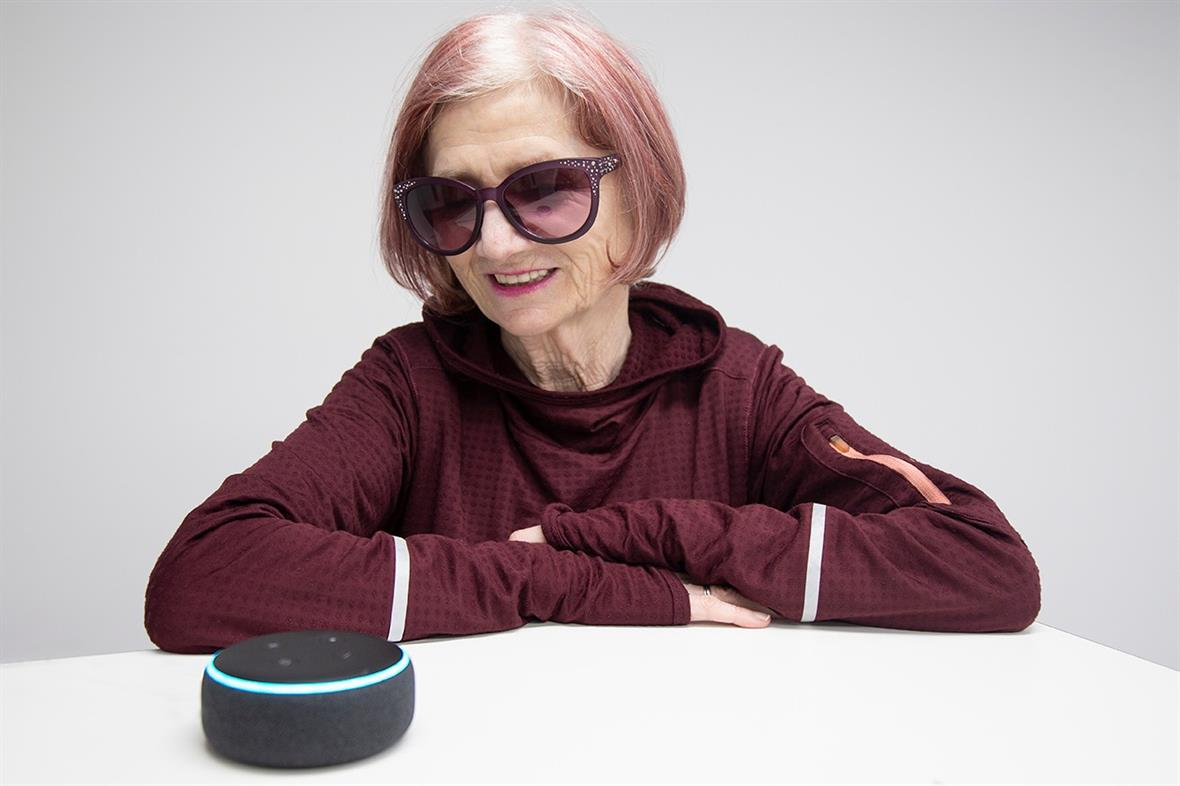Amazon is launching the “Alexa, call RNIB Helpline” Alexa feature, which is one of the latest Alexa functions following on from a collaboration with the Royal National Institute of Blind People (RNIB).
Customers who need the service simply need to say “Alexa, call RNIB helpline”. The helpline opening hours are Monday – Friday 8am-8pm; Saturday 9am – 1pm. Between these hours, an RNIB advisor will answer your call and offer support to those who need it.
The RNIB helpline helps people with sight loss, and those who support them, with a range of services. This includes advice on issues like employment, education and technology, and support to adapt to life with sight loss by way of peer support and counselling services. The helpline is also able to provide callers with practical assistance around accessing information, adapting your home, and getting around within you community.
“This is the next step in our collaboration with the RNIB, as part of our ongoing commitment to developing Alexa’s accessibility features,” said Dennis Stansbury, Alexa’s UK country manager. “The new ‘Alexa Call RNIB Helpline’ calling feature is another great way of helping our blind and partially sighted customers to feel more independent and connected by simply using voice commands.”
“Having Alexa in the home allows me to go about my day without facing as many barriers as I usually do” said Dr Amit Patel, disability rights campaigner and motivational speaker. “The Accessibility Hub hosts information on a range of features on Alexa such as Show & Tell and the new RNIB Helpline service which let me live more independently. I can control my home, connect with loves ones and identify hard to recognise objects all through my Echo device using my voice.”
The feature follows the recent launch of the Accessibility Hub, outlining the numerous ways smart home devices and virtual assistants can help unlock new ways to get things done such as identifying store cupboard ingredients, turning everyday difficulties into effortless independence. See below for some additional accessibility features that are offered by Alexa in a continued effort to support all our customers, including people with disabilities.
In addition to the “Call RNIB Helpline” feature, owners of an Echo device also have access to the below features via the Accessibility Hub. Images can be found attached of Dr Amit Patel utilising some of the features below.
Show & Tell
Late last year, Amazon introduced Show & Tell in the UK, allowing Echo users with a screen to hold common household objects up to the camera and simply ask, “Alexa, what am I holding” to identify the items that are difficult to recognise by touch alone, such as tins and cleaning products.
Speak Slower/Faster
Customers in the UK can ask Alexa to speak slower or speak faster, enabling Alexa to adapt to a diverse set of customer needs. Those who are visually impaired, and use text to speech on their technology, can request that Alexa speaks faster, mimicking the speed they are used to on other technology devices. This feature also aides those who are hard of hearing, allowing Alexa to speak at a preferred rate that suits their needs.
Screen Magnifier
The Screen Magnifier feature allows people with low vision to zoom in/out and pan to enlarge items on the screen for improved visibility, this enables customers of an Echo with a screen can still utilise functions such as cook-along.
Voice View Screen Reader
Alexa’s VoiceView feature is a screen reader for Echo devices with a screen. When enabled, VoiceView lets you use gestures to navigate the device while VoiceView describes the actions you perform on screen. Once VoiceView is enabled, specific gestures allow you to navigate the screen, such as swiping left or right with three fingers to go to the next or previous page.
Alexa App Theming
The Alexa app has recently been updated to include light and dark modes and text scaling for improved accessibility. The new update will allow users to have increased readability and offer colour contrast in different light environments for those that struggle with low or high-light situations.

